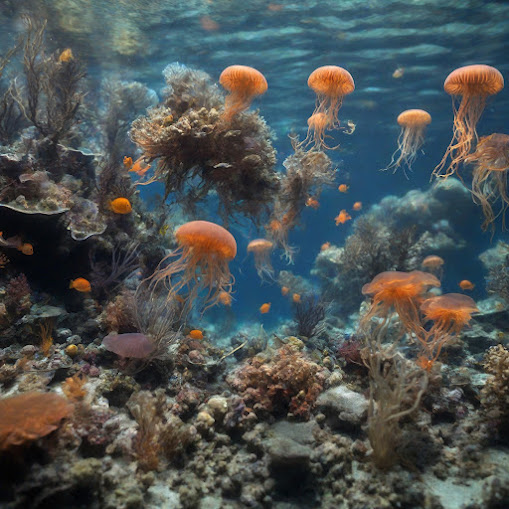Hurricanes
Hurricanes
Hurricanes: A Powerful and Destructive Natural Force:
Hurricanes are the most
powerful storms on Earth. They form over warm ocean waters in the tropics and
can produce winds of up to 200 miles per hour or more. Hurricanes can bring
torrential rains, storm surges, and high winds, causing widespread damage and
loss of life.
How hurricanes form
Hurricanes form when
warm, moist air rises from the ocean surface. As the air rises, it cools and
condenses, forming clouds and releasing heat. This heat fuels the storm,
causing it to grow stronger and larger.
Hurricanes need three things to form:
- Warm ocean
water: Hurricanes need water that is at least 80 degrees Fahrenheit (27
degrees Celsius) near the surface to form.
- A moist
atmosphere: Hurricanes need moist air in order to produce clouds and rain.
- Light winds:
Hurricanes need light winds near the surface in order to form and develop.
Once a hurricane forms,
it can travel thousands of miles over the ocean. Hurricanes typically move from
east to west, but they can also change direction.
The structure of a hurricane:
Hurricanes have a
characteristic structure, with a central eye surrounded by a ring of towering
thunderstorms. The eye is a relatively calm area in the center of the
hurricane, with winds of less than 30 miles per hour. The eyewall is the region
of the hurricane with the strongest winds and heaviest rain.
The impacts of hurricanes:
Hurricanes can have a
devastating impact on coastal communities. The storm surges caused by
hurricanes can inundate coastal areas with up to 20 feet of water, destroying
homes and businesses. Hurricane winds can also cause widespread damage, downing
power lines and trees.
Hurricanes can also
produce heavy rainfall, which can lead to flooding and landslides. In addition,
hurricanes can spawn tornadoes, which can cause even more damage.
Hurricanes and climate change:
Climate change is making
hurricanes more intense and destructive. Warmer ocean waters provide more
energy for hurricanes to feed on, and rising sea levels make coastal
communities more vulnerable to storm surges.
How to prepare for a hurricane:
If you live in an area
that is prone to hurricanes, it is important to be prepared. Here are some
tips:
- Have a
hurricane evacuation plan in place and know where you will go if you need
to evacuate.
- Stock up on
emergency supplies, such as food, water, batteries, and a first-aid kit.
- Secure your
home by boarding up windows and doors and trimming trees and shrubs.
- Stay informed
of the latest hurricane forecasts and warnings.
If you are asked to
evacuate, do so immediately. Hurricanes are dangerous storms, and it is
important to take them seriously.


.jpg)


.jpeg)